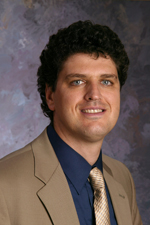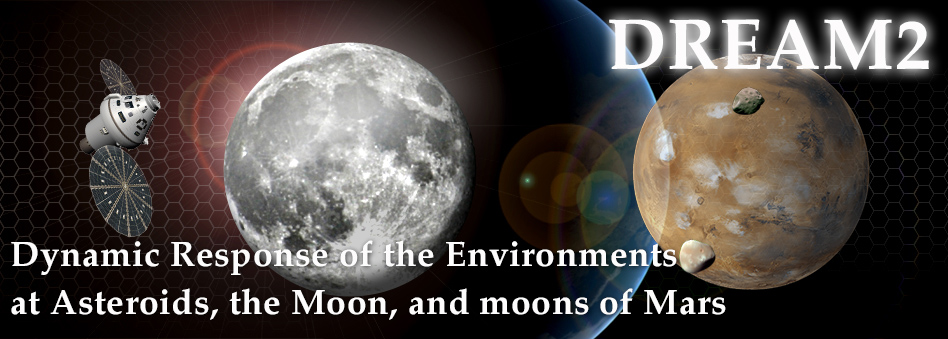Dynamic Response of the Environments at Asteroids, the Moon, and moons of Mars
 |
Dr. Nathan Schwadron
1. What is your role on the DREAM2 team?
I am the lead for the radiation component of DREAM2. We are investigating the sources of radiation from the Sun and galactic medium while also pursuing an understanding of the effects of radiation at the Moon and other airless bodies.
2. What about DREAM2 do you find most interesting? Most challenging?
We are looking into processes that are very difficult to decipher observationally and experimentally. The effects of radiation within regolith lead to widespread chemical changes that are very important for modifying compounds, transforming chemical species, and depositing charge into the regolith. We would like to not only identify these processes but also come up with observational verification using data from instruments like the Cosmic Ray Telescope for the Effects of Radiation (CRaTER). In addition, we are trying to verify these processes in the laboratory using measurements taken during beam runs.
3. Were you a part of the original DREAM team, funded through the NASA Lunar Science Institute? If so, what was your favorite science result?
I was not part of the original team.
4. What other NASA programs or missions have you participated in?
I am involved in other missions such as the Interstellar Boundary Explorer Mission and the developing Solar Probe Plus Mission. In the past, I have participated in ACE, Wind, Ulysses and many other missions. I am also the lead on a number of more theoretical projects such as the Earth Moon Mars Radiation Environment Module and the Corona-Solar Wind Energetic Particle Acceleration Module. Finally, I am involved in programs that lead to new instrumentation such as the Dose Spectra from Energetic Particles and Neutrons (DoSEN) project.
5. What kind/level of education do you have?
I have a Ph.D. in Physics. In college I majored in Physics and received honors.
6. What advice do you have for students who want to work for NASA or on NASA-related research?
Get involved in observational programs and experimental programs early on. These programs can be career sustaining.
7. What are your favorite things to do outside of work?
I enjoy spending time with my family, exercising and surfing. I surf year around in Maine.


